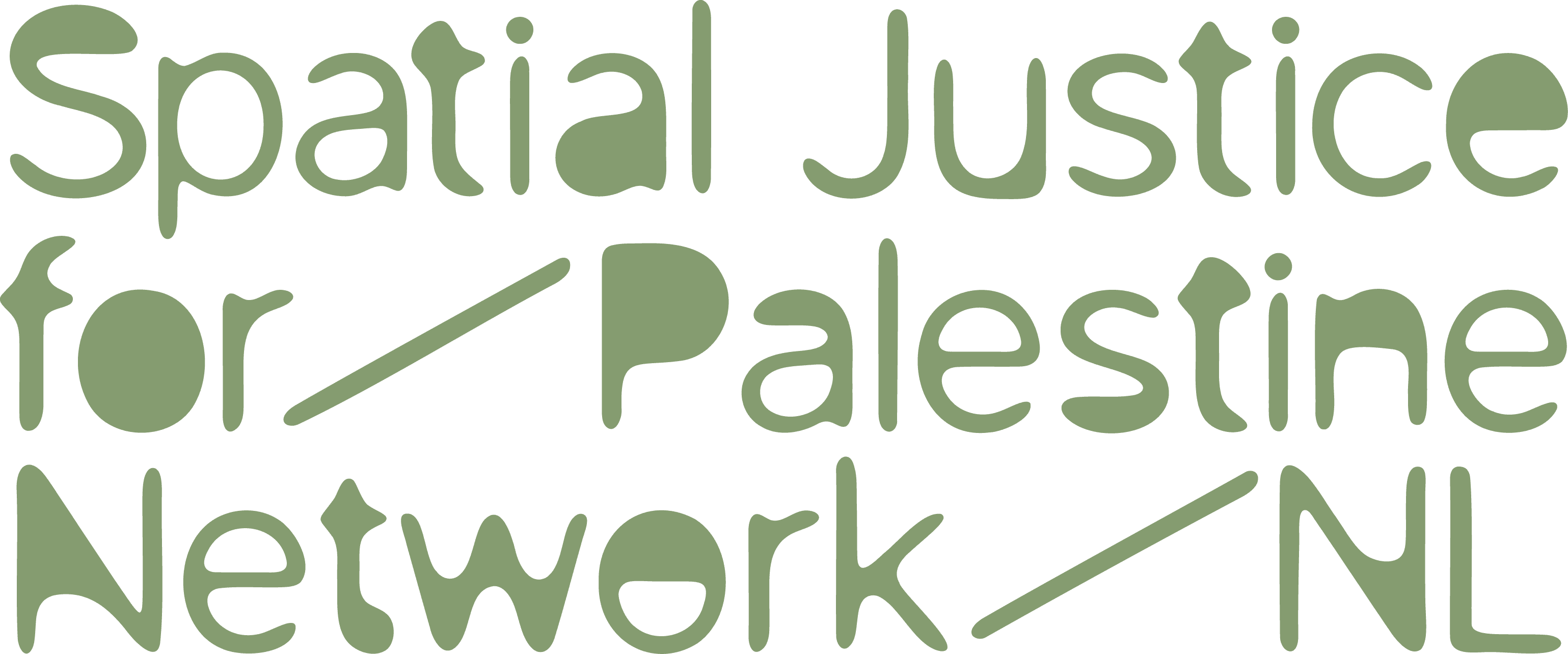Research
Architecture and Spatial Justice for Palestine
2025The Spatial Justice for Palestine Network (SJ4PN, NL) is an emerging collective of architects, researchers, and educators addressing the complicity, silence, and knowledge gaps within spatial disciplines in the face of architectural erasure in Palestine. Formed in 2023, the network responds to the lack of critical discourse on architecture as both a weapon of war and a tool of resistance. Through public seminars and workshops, the group interrogates the historical and ongoing role of architecture in processes of domicide, colonization, ecocide, and displacement.
Through public seminars and pedagogical initiatives, SJ4PN advances a much-needed interrogation of architecture’s role not only as a material condition of conflict but also as a site of resistance and re-imagination. Their work foregrounds the ethical responsibilities of spatial practitioners in times of crisis, asking how architectural knowledge might contribute to more just, situated, and accountable forms of reconstruction.
These seminars are organized as part of a larger knowledge dissemination solidarity action being developed by an international group of committed spatial and/or cultural practitioners based in the Netherlands. The group includes Arna Mačkić, Lada Hršak, Ali T. As’ad, René Boer, Nick Axel, Saja Amro, Saskia van Stein, and Nama’a Qudah.

- Credits
Background of 'Architecture and Spatial Justice for Palestine'
‘Reconstruction and Spatial Justice in Palestine’ is a long-term initiative by the Spatial Justice for Palestine Network (NL), launched in 2023. Through public seminars, workshops, and a growing research network, the project investigates how architecture is implicated in colonial violence as well as in resistance. It seeks to challenge the complicity of spatial disciplines in settler colonial contexts and activate knowledge exchange across regions and institutions.
What do we hope to accomplish with 'Architecture and Spatial Justice for Palestine'?
Through this collaboration, we aim to create space for critical reflection on architecture’s role in both oppression and liberation. By connecting local and international spatial practitioners, the project encourages solidarity, builds counter-narratives, and contributes to a more just and inclusive architectural field. The collaboration hopes to foster long-term alliances between cultural institutions and activist networks committed to spatial justice.
"Architecture operates from the premise of contributing to the public good, these good intentions are often Western centric by nature and seldom focus on the architecture as a problematic part of destruction."
Saskia van Stein, IABR